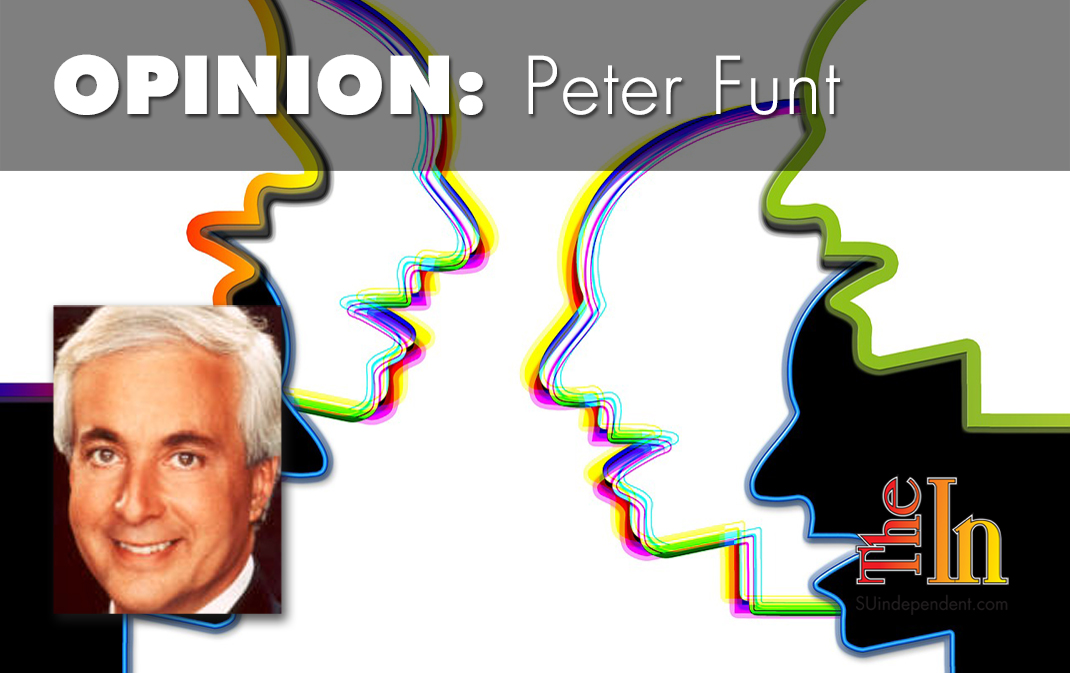
Democrats have much to debate
Democrats are moving quickly to address problems faced by both parties in the last presidential campaign concerning early-stage debates. But whether the DNC’s new ideas will meaningfully improve the process is, at best, debatable.
Four years ago Republicans struggled with too many candidates while Democrats had too few debates and scheduled some in undesirable weekend slots. This time, Democrats will hold debates early and often, beginning on successive weeknights this June. A lottery will divide the field with as many as 10 participants going the first night and an equal number the next.
Also new are dual pathways for qualification. A candidate must either reach 1 percent in three national polls or collect at least $65,000 from 200 donors in 20 different states. The DNC says the rules will evolve further over the course of what will be dozens of debates.
The qualification metrics are reasonable, but the lottery is risky. If one or two front-runners find themselves on stage with a cast of long-shot opponents the value of the event will be diminished. Moreover, there are other problems with presidential debates – especially those conducted in the early going – that have yet to be addressed.
Debates or interviews?
A flaw in early debates is that moderators, usually chosen by the news organizations carrying the events, feel compelled to tailor their questions to each particular candidate. Thus, for example, a logical question to California Sen. Kamala Harris would be: “Your record as a criminal prosecutor seems to be at odds with several of your current campaign positions. How do you reconcile that?” Similarly, Massachusetts Sen. Elizabeth Warren would be asked about her claims of Native American heritage, Vermont Sen. Bernie Sanders would be asked about his age, and so forth.
Such questions would be appropriate in a town hall or Sunday TV interview, but in a multi-candidate debate become a distraction. A true “debate” involves an exchange of positions and ideas on key issues. Ideally, every candidate should be required to answer the same questions – about climate, immigration, taxes, etc.
The attack rule doesn’t work
It’s generally accepted that if one candidate attacks another directly in the course of giving a timed answer, the other candidate is allowed to respond. This proved especially vexing for Republicans in 2016 because practically every candidate was asked about Donald Trump, giving Trump a disproportionate opportunity to seize the microphone. Democrats should waive this rule and allow candidates to fend for themselves during their own allotted time.
Candidates don’t stay on point
Too often, participants deflect a question and turn instead to pet talking points. Moderators must be more aggressive in keeping to the question at hand.
Social media don’t fit
News organizations are enamored of Twitter, Facebook, and other digital means of allowing viewers to “participate” in debates. This bogus practice should be halted. Journalists have enough problems orchestrating questions and eliciting meaningful answers from the candidates without random input from viewers that is purely cosmetic and wastes time.
The debate process becomes significantly easier as the size of the field is reduced and the election draws near. But in a critically important race, with such a diverse cadre of candidates, Democrats need to think outside the box in the early going. Debates should do more to examine the strengths of rising stars rather than cement the fortunes of an established candidate, as happened with Hillary Clinton in 2016.
Would Democrats consider having candidates grilled one at a time in the first portion of the event, while the others were isolated backstage?
Might Democrats agree to one debate in which all questions are asked by the candidates of each other?
Would the DNC sanction a series of debates on successive nights in late summer for which each installment involves just a single topic, such as healthcare in America?
Any chance of conducting a debate in a studio without an audience?
What if the podiums were placed in a circle so candidates had to look one and other in the eyes rather than playing to the crowd?
Whatever the format, this cycle’s debates should focus on information and insight, not ratings or the showcasing of network anchors. That much is beyond debate.
The viewpoints expressed above are those of the author and do not necessarily reflect those of The Independent.
How to submit an article, guest opinion piece, or letter to the editor to The Independent
Do you have something to say? Want your voice to be heard by thousands of readers? Send The Independent your letter to the editor or guest opinion piece. All submissions will be considered for publication by our editorial staff. If your letter or editorial is accepted, it will run on suindependent.com, and we’ll promote it through all of our social media channels. We may even decide to include it in our monthly print edition. Just follow our simple submission guidelines and make your voice heard:
—Submissions should be between 300 and 1,500 words.
—Submissions must be sent to editor@infowest.com as a .doc, .docx, .txt, or .rtf file.
—The subject line of the email containing your submission should read “Letter to the editor.”
—Attach your name to both the email and the document file (we don’t run anonymous letters).
—If you have a photo or image you’d like us to use and it’s in .jpg format, at least 1200 X 754 pixels large, and your intellectual property (you own the copyright), feel free to attach it as well, though we reserve the right to choose a different image.
—If you are on Twitter and would like a shout-out when your piece or letter is published, include that in your correspondence and we’ll give you a mention at the time of publication.
Articles related to “Democrats have much to debate”
Socialism destroyed Venezuela’s economy, but freshmen Democrats want it here



